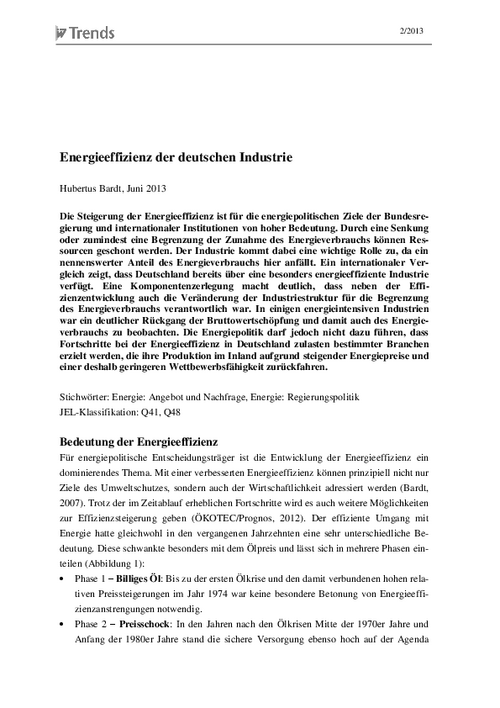Increasing energy efficiency is one of the prime energy policy objectives of the German government and international institutions. A reduction, or at least a limit to the increase, in energy consumption will help to conserve resources. Here, the manufacturing sector, which is responsible for a considerable proportion of total energy consumption, has an important role to play. Yet a comparison with other countries shows that German industry is already particularly energy efficient. Moreover, a detailed analysis makes clear that the curbing of energy consumption is a result not only of growing efficiency but also of changes in the structure of industry: A number of energy-intensive sectors show a clear decline in gross added value as well as energy consumption. Energy policy must not result in progress in energy efficiency in Germany being achieved at the expense of certain industries reducing their domestic production due to increasing energy prices and a consequent loss of compet-itiveness.

The Energy Efficiency of German Industry
IW-Trends


Hubertus Bardt: Energieeffizienz der deutschen Industrie
IW-Trends

More on the topic

Pharmaceutical industry: Increasing pressure on the labor market
The shortage of skilled workers poses significant challenges for pharmaceutical companies in Germany and is expected to become increasingly problematic in the context of demographic changes. Concerning Germany's positioning in the international competition ...
IW
Industrial policy at the turn of the times
The current debate on industrial policy vacillates between the extreme positions of an orthodoxy of rejecting state action and a naive belief in the state's ability to control structural change.
IW